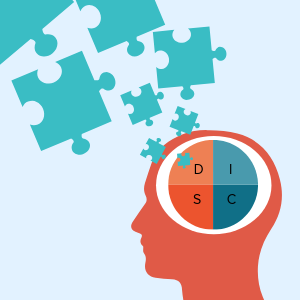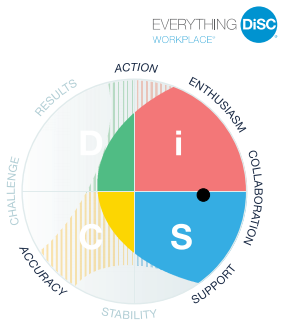Can Personality Tests Help Your Optometry Hiring?
How can you know that the person you want to hire will fit well with the dynamic and personalities of your optometry practice? We know many large companies that use research-tested personality assessments not only for hiring, but also for team building.
Personality tests are good cues for ODs and office managers before they call a candidate in for an interview. Although there are many tests out there, we've rounded up the few that are most relevant to the eyecare industry and workplace for you below.
In order to prevent employees leaving your practice, you have to make sure they're the right fit from the start.
How to Use Personality Tests in Your Eyecare Practice
 Which test?
Which test?
Depending on what skills you're looking for, you'll want to choose one personality test from the bunch so you don't overwhelm your candidates. We also recommend administering cognitive ability tests, integrity tests, and other skill-based tests as needed. These tests become increasingly relevant when you're hiring a manager, new OD, or if you're overwhelmed with qualified applicants. We know that sometimes candidates aren't a good fit with your daily routines, office pace, and general demeanor of your team. The following personality tests can help you identify these people before you hire them.
MBTI
The Myers Briggs Type Indicator is mainly used by business professionals and should be administered securely. After completing the 15-20 minute assessment, every participant is assigned a 4 letter personality type indicator. Different MBTI types are suited for each role within the workplace.The MBTI measures extroversion, intuitiveness, how you perceive the world, and organization levels.
We recommend you read about all 16 personality types, have every existing staff member take the assessment, and then make a list of which personality types you're missing that would work well with your team.
Good for: Late in the hiring stages, resolving conflicts, and providing guidance for managers.
DISC Assessment
For more situational personality presentation, DISC delves into dominance, influence, steadiness, and conscientiousness. This will help you understand how candidates react under pressure, the role they play in a group, and how they communicate. Basically, you'll see where the candidate falls on the chart to the right. This way, you can know how they will fit in with your existing group.
Good for: Hiring for positions that have to work closely with others, such as front-desk staff, opticians, and office managers
Big 5
The Big 5 personality test measures five personality traits on a spectrum. This is the test that most psychologists and health professionals deem credible. It aims to help people understand who they are in terms of openness, conscientiousness, extroversion, agreeableness, and neuroticism (OCEAN).
Good for: Solving conflicts within the office, dealing with a problem employee, or understanding your own management style
How will it help?
After examining their purposes, we aren't convinced a personality test is right for every hire. For more technical roles, it makes sense to administer skill-based assessments. Overall, these tests are most helpful for clarification and providing guidance when you're deciding between two equally qualified applicants.
However, if your optometry practice has an expensive turnover problem, you might want to require all incoming and existing employees take a personality test so you can find out if maybe you're not hiring people who are the right fit.
Want more tips on how to adapt your management style to reduce employee turnover? Subscribe below to receive instant, daily, or weekly updates from our blog.

